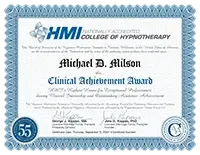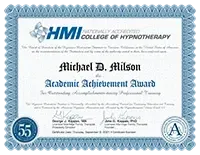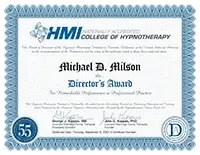
Mastering the Skills for a Successful Career in Hypnosis and Hypnotherapy
Why Skills Matter in Hypnosis and Hypnotherapy
Becoming a skilled hypnotist or hypnotherapist goes far beyond simply memorizing scripts or techniques. This profession demands a unique blend of interpersonal and technical skills, along with the ability to adapt to each client’s needs. While the terms “hypnotist” and “hypnotherapist” are often used interchangeably, the choice of title can depend on where someone trained, the preferences of the certifying organization, or even local regulations. For example, in some regions, non-medically licensed practitioners avoid the term “therapist” to steer clear of legal or cultural sensitivities.
Understanding these nuances and honing the right skills can help you create a fulfilling and impactful practice. Let’s explore the essential skills you’ll need and some common misconceptions about what’s truly required to get started in this rewarding field.
The Most Important Skills for Hypnotists and Hypnotherapists
Building Rapport and Trust
Rapport is the foundation of any successful hypnosis session. Clients need to feel comfortable, understood, and confident in your ability to guide them. This isn’t just about being friendly—it involves creating a space where clients feel safe enough to engage fully in the process. Building trust in hypnosis itself is equally crucial, particularly for clients who may feel uncertain or skeptical.
In a comprehensive training program, like the one offered at Michigan Hypnosis Institute, you’ll discover techniques to foster rapport quickly, including advanced NLP strategies like matching and mirroring. You’ll also learn how to help clients relax into the process, showing them that hypnosis is a collaborative journey.
Echoing for Deeper Understanding
Unlike traditional active listening, which involves paraphrasing, echoing repeats the client’s exact words. This technique builds a deeper connection by showing clients that you not only hear but truly understand them. It also creates alignment with the unconscious mind, which plays a significant role in hypnosis.
Many training programs, including ours, emphasize this subtle yet powerful communication method. You’ll practice echoing until it becomes second nature, helping you build rapport effortlessly while reinforcing key concepts for the client.
Adaptability and Flexibility
Every client is unique, and what works for one may not work for another. Being flexible in your approach is key to achieving results. This means moving beyond rigid pre-written scripts and tailoring techniques to fit the client’s specific goals and preferences.
Hands-on training programs teach this adaptability by exposing students to a variety of approaches. By practicing with different personalities and challenges, you’ll learn how to modify your methods in real time, making your sessions more effective and client-centered.
Confidence in Your Abilities
Confidence is essential in hypnosis. If you exude certainty in your skills and the process, your clients are more likely to follow your lead. This confidence doesn’t come from blind belief—it’s rooted in experience, practice, and understanding how hypnosis works.
A strong training foundation builds this self-assurance by providing opportunities to practice in a supportive environment. You’ll see firsthand how techniques work, giving you the conviction needed to guide clients successfully.
Patience and Persistence
Not every client achieves instant results. Some may take longer to see progress, while others may require repeated sessions to overcome resistance. As a hypnotherapist, patience allows you to stay supportive, while persistence ensures you continue seeking solutions.
Training programs often address this by introducing you to real-world case studies. You’ll learn to manage expectations and maintain a long-term perspective, both for yourself and your clients.
Creativity, Passion, and Enthusiasm
Creativity allows you to think outside the box and adapt your techniques to solve unique challenges. Passion and enthusiasm, on the other hand, inspire confidence in your clients. When you genuinely care about your work, it shows—and it motivates clients to engage more deeply in the process.
Many programs encourage this creativity by exposing students to a range of tools and techniques. This not only broadens your skillset but also keeps your work fresh and exciting.
Communication Skills
Effective communication is a cornerstone of hypnosis. Your tone, pacing, and choice of words play a significant role in guiding clients into trance and delivering impactful suggestions. Non-verbal communication, such as body language and facial expressions, is equally important.
Training programs often include modules on advanced communication techniques, helping you refine your delivery and connect with clients on multiple levels.
A Deep Understanding of Hypnotic Principles
Hypnosis isn’t just about inductions—it’s about understanding the mechanisms behind them. Knowing how and why hypnosis works allows you to troubleshoot challenges and create sessions tailored to the client’s needs.
Programs like ours provide a comprehensive look at the science and art of hypnosis, ensuring you develop both a theoretical foundation and practical application skills.
Dedication to Lifelong Learning
The field of hypnosis is always evolving, with new techniques and insights emerging regularly. A commitment to continual learning keeps you ahead of the curve and ensures your practice remains relevant and effective.
Many training programs instill this dedication by encouraging ongoing education through advanced courses, workshops, and mentorship opportunities.
What You Don’t Really Need to Be a Hypnotist/Hypnotherapist
Formal Degrees or Licenses
In most places, hypnotherapy is unregulated. You don’t need a medical or psychological degree to practice hypnosis. While such credentials can be valuable, they aren’t a prerequisite. What matters most is your ability to guide clients effectively and ethically.
Overhyped Certifications
Certification bodies vary widely in credibility. Many are unregulated, existing primarily to serve affiliated schools or generate revenue. These certifications often prove only that you’ve attended a course—not that you’re skilled or experienced. Instead, focus on developing real-world expertise that speaks for itself.
A Library of Techniques
It’s a myth that you need to master dozens of techniques before seeing clients. In fact, becoming proficient in a handful of core methods is often far more effective than having a superficial understanding of many. Depth, not breadth, is key.
Client Belief in Hypnosis
Hypnosis doesn’t require belief—it requires compliance. If clients are willing to follow your instructions, the process works. Your role is to guide them, not to convince them to believe in hypnosis.
Pre-Written Scripts
Scripts can be a useful starting point, but effective hypnosis comes from adapting to the client’s needs. Relying solely on scripts limits your ability to connect and respond dynamically during sessions.
Ending Thoughts
Mastering the skills of a hypnotist or hypnotherapist takes practice, patience, and the right guidance. Whether you’re new to the field or refining your expertise, focusing on the core skills outlined here will set you up for success. At the same time, understanding what’s not required can help you avoid unnecessary distractions and focus on what truly matters: creating meaningful change for your clients.
Hypnosis is both an art and a science, and with dedication to continual growth, you can build a fulfilling career that transforms lives. If you’re ready to take the next step, explore training options that emphasize real-world skills and practical application, helping you unlock your full potential in this incredible field.




